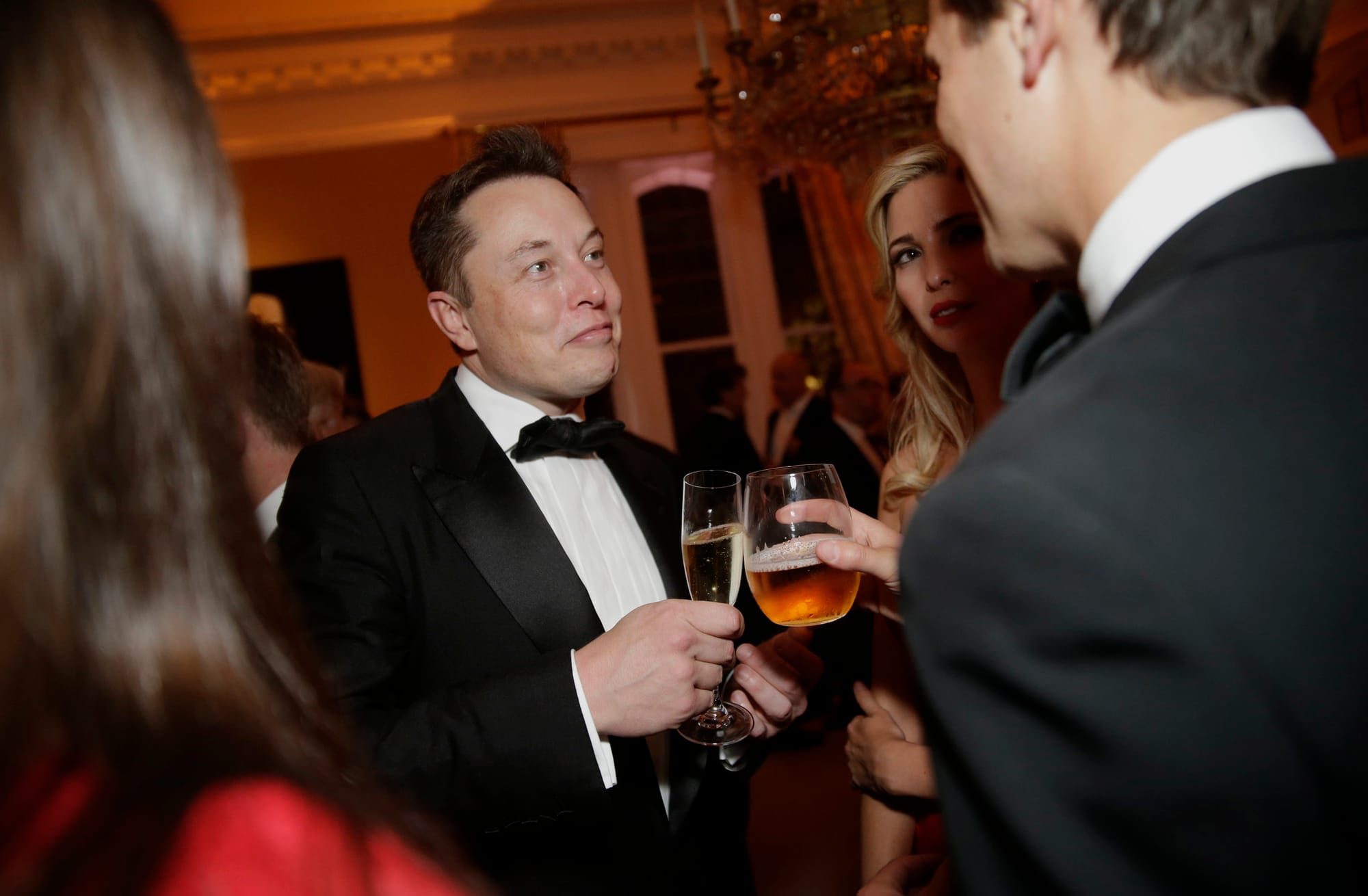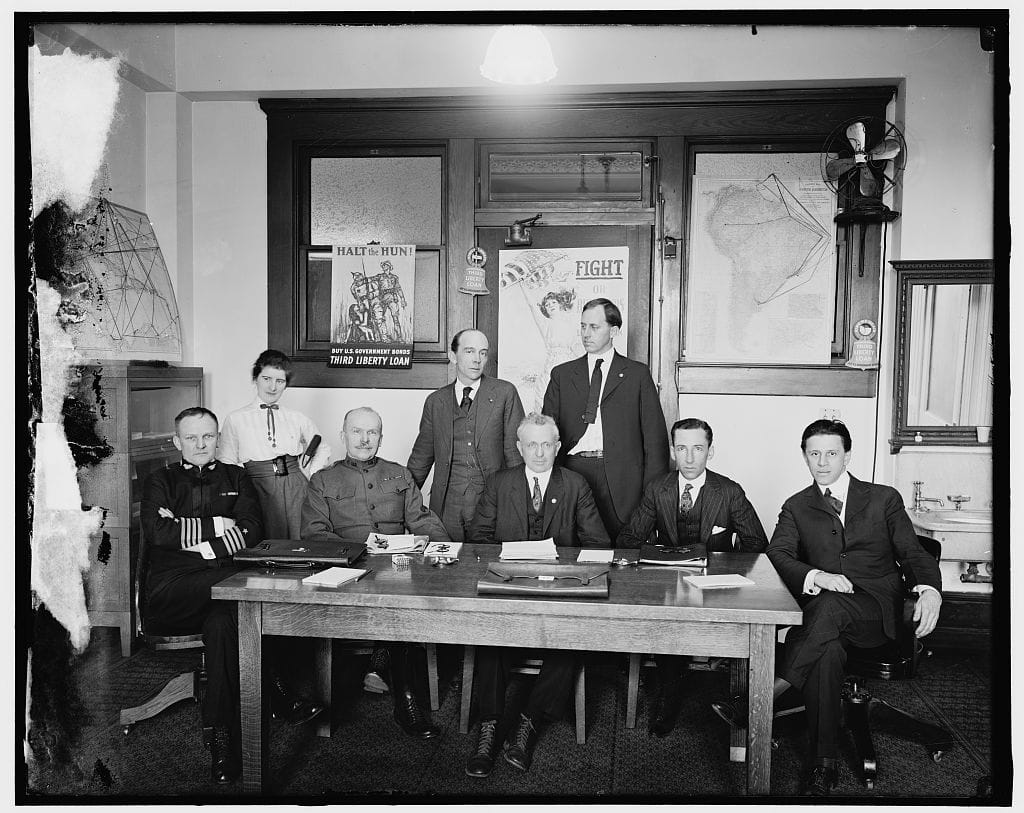
A recent leak of venture capitalist Marc Andreessen’s group chats has revealed that he’s quite happy to see our university system destroyed if it will keep out foreigners and humiliate the elites who “actively discriminated against” people like him. The messages are at times quite shockingly racist in their content, referencing how “the combination of DEI and immigration” are “two forms of discrimination” that “systematically cut most of the children of the Trump voter base out of any realistic prospect of access to higher education and corporate America.”
Less shocking but no less notable is his contempt for elite centers of learning. He declares “Stanford and MIT as mainly political lobbying operations fighting American innovation at this point,” a remarkably delusional statement. Andreessen has made no secret of the fact that he feels he and his tech oligarch peers have been betrayed by elite institutions and the Democratic party. But the reality is that they are the ones who have betrayed not only their country, but the very system which made their fortune and status possible.
The partnership
The history of the Internet is a history of the peculiar partnership of government, academy, and industry that are the foundation of the American model of innovation and growth—warts and all. Most people have heard of ARPANET, the precursor to the more broadly available Internet. That came about as a result of the Defense Advanced Research Projects Agency (DARPA) scientists Vint Cerf and Robert Kahn, who developed TCP/IP, the protocol that allows computers to talk to one another and still forms the basis of the Internet today.
In 1971, recent MIT graduate Ray Tomlinson was working at a firm with access to ARPANET and developed the current basis for email. That same year, Abhay Bhushan—an international student from India in a master’s program at MIT—developed the File Transfer Protocol (FTP).
The web specifically, including HTML which websites are written in, was developed by Tim Berners-Lee and others at CERN—an example of how investment in advancement anywhere produces benefits well beyond the countries that invest in them. Berners-Lee developed a rudimentary browser to test the concept, but the first browser to gain any traction was Mosaic, developed at the University of Illinois Urbana-Champaign’s National Center for Supercomputing Applications (NCSA) in 1993. In 1994, the National Science Foundation (NSF) awarded “a large grant” to NCSA to continue developing Mosaic.
Among those who worked on Mosaic at NCSA was Marc Andreessen. He is also, of all the names mentioned so far, the only person who went on to become a billionaire, and indeed is one of the 2000 richest men on the planet. He was well positioned to take a product to market because of the work he was able to do as part of a research organization (NCSA) within a public research university. We have already covered the specific federal grant that went to Mosaic. After reaping the benefits of that public infrastructure and investment, Andreessen went to the private sector, where he developed Netscape Navigator, eventually selling his company to AOL for billions of dollars.
Obviously, much of Andreessen’s fortune has come from his subsequent successes as a venture capitalist. Yet without that very first success, there’s little chance he could have become a big time VC in the first place. And now he has betrayed the very system that made his success possible; the system in which he and a handful of others like him have profited disproportionately relative to their contribution.
Industry’s role
The American system is not an unbridled free market, and that’s a good thing. It is also not central planning, either, and that’s a good thing as well. America in the second half of the 20th century sought to create a mixed system that offered the best of every component. Public financing would provide a stable stream of resources for work that was potentially beneficial to the public yet difficult to make a business case for. Alongside actual government agencies doing research and development directly, universities and other research organizations created the institutional environments that fostered productive research and scientific collaboration. Finally, investors and entrepreneurs searched for opportunities to take something to market.
This does not mean that industry’s role was merely taking what government and the academy developed and offering it to consumers. Businesses can conduct original research as well; for example, in 2023 private firms spent $735 billion on R&D. But the main role of industry in practice is to take things the final 20 percent (or less) they need to go to be ready for the public. A good deal of R&D itself is more about setting aside time and funds to work out the kinks of things originally conceived somewhere in the partnership between government and the academy. This is an incredibly important role and one that is easy to underestimate the value of. If you build out cable infrastructure 80 percent of the way to populated areas but no one ever builds the rest, it is effectively worthless. And 20 percent of the problem doesn’t necessarily mean 20 percent of the difficulty. Sometimes, that last mile is quite hard indeed, and the particular approaches and incentives of business make them the best suited to the task.
On the other hand, sometimes the last 20 percent is much less than 20 percent of the difficulty. Netscape is very much one such case. The Netscape team did not develop HTML, which the browser rendered, nor the websites written in it. They did not develop TCP/IP, never mind the hundreds of thousands of miles of cables and the server infrastructure that made it possible for the tiny ARPANET to become the public Internet. They created one piece of software that performed a simple task well enough to deliver to the market, and they successfully achieved mass adoption. More critically for Marc Andreessen’s personal fortune, Netscape the company was acquired before Netscape the product was ultimately supplanted by competitors.
Again, the difficulties of achieving mass adoption should not be underestimated. The ability to write code that runs at scale may be a relatively hard skill that is straightforward to gauge, but the softer skills of sales and business do matter and aren’t automatic. Innovations cannot change people’s lives if they are never adopted. One part of industry’s role is simply figuring out what particular configuration of an innovation appeals to the public and doing the work to deliver it to them.
Nevertheless, even in this, Netscape’s task was relatively easy. People simply had to download it—on computers built by someone else, running an operation system developed by someone else, connecting to a network built by many others. Yet of all these legions of people doing the work to deliver computers capable of browsing the web, only Marc Andreessen and a handful of others (such as Bill Gates) became megarich, while the rest had largely ordinary salaries.
The deal
The justice of allowing so few to profit so disproportionately has been constantly debated in American history, including the entire era of the partnership of government, the academy, and industry. Nevertheless, while tax rates at the top have varied—although effectively much less so than one might think from changes in the top marginal rate—we have largely tolerated the enormous gains of the few in industry. One defense of this outcome is that the entire point of industry is for private actors to take on the risk of their actions, meaning they stand to lose if they make mistakes and could potentially lose everything. Of course, even this simplifies matters. Private businesses can receive public grants, and the government has frequently stepped in to bail out troubled firms if they are perceived as important enough (or more cynically, are politically connected enough). But most businesses do not receive public grants and cannot credibly expect to be bailed out by the government, and so their owners face the very real risk of failure. High rewards for succeeding are the flipside of shouldering high risks. And both the risk of losses, and the possibility of large rewards, aligns private actors in ways that are beneficial to the public—if constrained within a proper system of laws and regulations.
One can think of industry’s role in this system as a deal made with the government and indeed, with society. It goes like this: you, the investors and entrepreneurs of industry, will figure out which of the innovations that government and the academy and other researchers have done 80 percent of the work on might be valued by the public. You will take the risk that your judgment is incorrect and do the work to carry it the last 20 percent of the way to mass adoption. This will give you the chance to become very rich as a result, which we will tolerate, even if your wealth is disproportionate to your particular contribution, because industry’s role overall is very valuable.
On the other hand, you will be subject to regulatory and political scrutiny, because all of this only works if what you are doing is actually for the public good in the end. There are plenty of things that industry gets its hands in that turn out to be ponzi schemes, outright fraud, or well meaning but ultimately harmful to the public. They do not have perfect incentives to self-police these matters, and even if they did, people are people—quite capable of self-deception and seeking short term gains. The regulatory state exists for a reason.
But of course, there is no such deal. To speak of “deals” of this kind is to indulge in the kind of fiction all too common in the social contract tradition, where rhetoric slips seamlessly from acknowledgement of a fiction to treating it as an empirical fact. We live in a huge, continent-spanning, polyglot, pluralist society, where unanimity has never been in the cards. Many people were never happy with the level of regulation, thinking there was too much or too little. Many people felt (clearly correctly) that the existence of billionaires in our system was not just unjust but actually dangerous for the stability of our politics. Others felt that allowing entrepreneurs to become billionaires was essential for innovation, and indeed far more essential than any of the work performed by government or the academy. Rather than a deal, there has just been a constant renegotiation of the arrangement since the very beginning of it, from FDR to Reagan to today, and the many cycles of turnover in Congress and state governments in between. There are no permanent victories or permanent deals in politics, and this is especially the case in a free and democratic society.
Marc Andreessen believes there was a deal, however. A “Deal, with a capital D” that “was just something everybody understood.”
You’re me, you show up, you’re an entrepreneur, you’re a capitalist, you start a company, you grow a company, and if it works, you make a lot of money. And then the company itself is good because it’s bringing new technology to the world that makes the world a better place, but then you make a lot of money, and you give the money away. Through that, you absolve yourself of all of your sins.
Then in your obituary, it talks about what an incredible person you were, both in your business career and in your philanthropic career. And by the way, you’re a Democrat, you’re pro-gay rights, you’re pro-abortion, you’re pro all the fashionable and appropriate social causes of the time. There are no trade-offs. This is the Deal.
Left unclear are what the “sins” in question are supposed to be or how much of his money Andreessen actually gave away. At any rate, Andreessen feels that this deal has been broken. It was broken by elite universities, who turned the children of elites into “America-hating communists.” And it was broken by the Democratic Party, which “decided that we were to blame for Trump.” The communist millennials who entered the workforce in the 2010s sought to destroy every institution they touched, including the companies invested in by Andreessen-Horowitz, and the Democratic-controlled media abetted them. This escalated when Biden came into office and, for example, “They just ran this incredible terror campaign to try to kill crypto. Then they were ramping up a similar campaign to try to kill A.I.”
Since “the Deal, with a capital D” had been broken, Andreesen and his cohorts had no choice but to throw their lot in with Trump, who now is making those dealbreakers pay the price. And it’s going swimmingly, from Andreesen’s point of view. He is no longer bound by the terms of “the Deal,” which required him to pay lip service to “all the fashionable and appropriate social causes” such as human rights and equal dignity.
To his dying day, Andreessen will surely believe that they are the traitors, that he was the one who was betrayed. But the only traitor is Andreessen himself.
The treason of the tech oligarchs
The partnership between government, the academy, and industry was a sweet deal for investors and owners like Andreessen in which they reaped the largest personal rewards of any actor by far. This partnership has been tremendously beneficial for the world in advancing the frontiers of science and technology. And it has been even more beneficial for America itself, our influence in the world, our quality of life, and our military capacity. And it is exactly this partnership that Andreessen has betrayed.
Andreessen and the tech reactionaries were not betrayed by “American-hating communists” backed by the “Democratic machine;” they simply could not be content to be merely rich. Out of spite towards those who disrespected them and contempt for liberal democratic governments that attempted to hold them to the obligations of citizenship and the law, Andreesen and his peers have betrayed the very arrangement that made them wealthy and influential.
Research universities have been targeted since the very first week of the current Trump administration, and in a way that would put research centers such as NSCA, where Andreessen got his start, at risk. NSF, which paid out a grant for NSCA’s cutting edge work on the Mosaic browser, has faced drastic and illegal cuts and will almost certainly face more for the rest of Trump’s term. Meanwhile, after regulators suspected that the cryptocurrency industry was rife with ponzi schemes (or they ran “incredible terror campaign to try to kill crypto” in Andreessen’s words), the Trump administration will be giving the industry an enormous bribe. The tech oligarchs want government cash but not obligations, wealth without duty or any of the basic burdens of citizenship. The rewards of success without the risks of failure, and indeed, they want to be rewarded even when they fail.
They have betrayed the society that enriched them, and have put us at serious risk of authoritarianism, ethnic cleansing, lawlessness, and stagnation. They have betrayed the values that made that society great, values which they apparently only ever held superficially because they believed it would make them appear respectable. They can no longer be trusted. When the wheel turns once again, the matter of their treachery must be revisited, and a new arrangement must be reconstructed from the wreckage of the old one.
Featured image is NCSA Blue Waters, by HorsePunchKid





